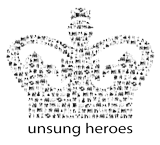ROSEBERY CENTRE CLOSURE
After receiving new government advice stating that we should be stringent in “social distancing for everyone who is at an increased risk of severe illness from Coronavirus, this includes aged over 70 or those with underlying health issues.”
In line with this new government advice, we have unfortunately taken the decision to now close the Rosebery Centre until further notice. We have not taken this decision lightly but the health and well-being of our members, carers and staff are of the utmost importance and must be our priority at this worrying time.
We are extremely saddened and understand the effect this will have on our members, but we will be offering short home visits by our trained staff until we are given advice that this will no longer be an option, each person will have already have been contacted regarding this.
We cannot state a time in which we will open again. The government advice is to have this minimal contact for up to 12 weeks for this vulnerable category, but please note we will be in constant contact via phone and email to carers and families giving any information we possibly can. Our phone number (01506 870 651) will still be in use, and you will be able to contact us and leave messages on this number throughout our closure.
We urge everyone to stick to these guidelines and keep up to date with the news and advice that will keep coming from the government, and most importantly urge everyone to stay safe during this global pandemic.
We have included in this letter the stated government advice and also an information sheet showing the symptoms to look out for. Please note if you or anyone in your household is showing any of these flu-like symptoms you must let us know so that we do not visit your home.
Thank you for all your understanding and as always, your continued support of the Rosebery Centre.
Keep safe and kindest regards,
Anne Marson
Government information for your information
We are advising those who are at increased risk of severe illness from coronavirus (COVID-19) to be particularly stringent in following social distancing measures.
This group includes those who are:
-
- aged 70 or older (regardless of medical conditions)
- under 70 with an underlying health condition listed below (i.e. anyone instructed to get a flu jab as an adult each year on medical grounds):
- chronic (long-term) respiratory diseases, such as asthma, chronic obstructive pulmonary disease (COPD), emphysema or bronchitis.
- chronic heart disease, such as heart failure
- chronic kidney disease
- chronic liver disease, such as hepatitis
- chronic neurological conditions, such as Parkinson’s disease, motor neurone disease, multiple sclerosis (MS), a learning disability or cerebral palsy
- diabetes
- problems with your spleen – for example, sickle cell disease or if you have had your spleen removed
- a weakened immune system as the result of conditions such as HIV and AIDS, or medicines such as steroid tablets or chemotherapy
- being seriously overweight (a body mass index (BMI) of 40 or above)
- those who are pregnant.
Note: there are some clinical conditions which put people at even higher risk of severe illness from COVID-19.
People falling into this group are those who may be at particular risk due to complex health problems such as:
-
-
- people who have received an organ transplant and remain on ongoing immunosuppression medication
- people with cancer who are undergoing active chemotherapy or radiotherapy
- people with cancers of the blood or bone marrow such as leukaemia who are at any stage of treatment
- people with severe chest conditions such as cystic fibrosis or severe asthma (requiring hospital admissions or courses of steroid tablets)
- people with severe diseases of body systems, such as severe kidney disease (dialysis).
-
What is social distancing?
Social distancing measures are steps you can take to reduce the social interaction between people. This will help reduce the transmission of coronavirus (COVID-19).
They are:
-
-
- Avoid contact with someone who is displaying symptoms of coronavirus (COVID-19). These symptoms include high temperature and/or new and continuous cough;
- Avoid non-essential use of public transport, varying your travel times to avoid rush hour, when possible;
- Work from home, where possible. Your employer should support you to do this. Please refer to employer guidance for more information;
- Avoid large gatherings, and gatherings in smaller public spaces such as pubs, cinemas, restaurants, theatres, bars, clubs;
- Avoid gatherings with friends and family. Keep in touch using remote technology such as phone, internet, and social media;
- Use telephone or online services to contact your GP or other essential services.
-
Everyone should be trying to follow these measures as much as is pragmatic.
For those who are over 70, have an underlying health condition or are pregnant, we strongly advise you to follow the above measures as much as you can, and to significantly limit your face-to-face interaction with friends and family if possible.
Symptoms of a COVID-19 infection
The most common symptoms of COVID-19 are a new continuous cough and/or a fever/high temperature (37.8C or greater). You may feel warm, cold or shivery.
Some people will have more serious symptoms, including pneumonia or difficulty breathing, which might require admission to hospital.
A downloadable version of the letter is available HERE.



